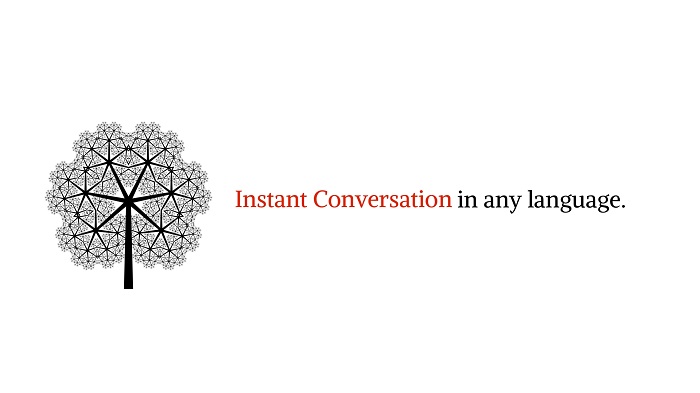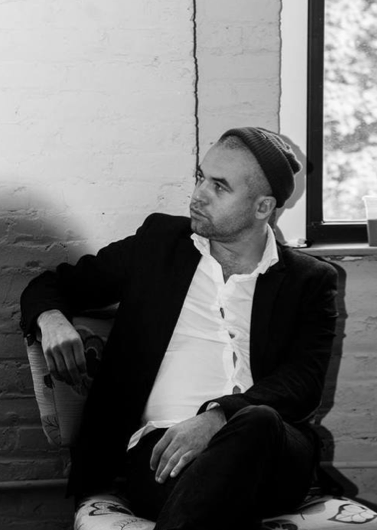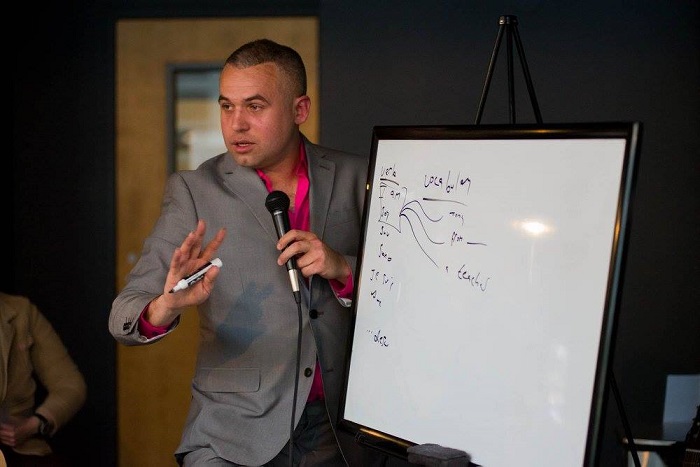Tony Marsh is an entrepreneur who has made a business out of his love for teaching languages. He is the creator of the Tony Marsh Method, an innovative, matrix-based approach to language acquisition. His career shows a potential path for anyone interested in what might come after teaching abroad.
How did you get started as a language teacher, and what do you teach?
I was an Arabic Cryptologic Linguist for the US Air Force, and during my Arabic training, I began tutoring other students. When I left the military in 2009, I began teaching Spanish, Portuguese, Arabic and English to adults, corporations, and government and military organizations such as the FBI and Navy.
Why are languages interesting to you? Can you tell us the story of how you discovered your love of language?
I didn’t begin seriously learning a language other than my first language English until I was 17. At that time I began dating a girl who was Mexican and spoke mostly Spanish. I realized at that time that it was fun to learn the language sort of like a puzzle, and I enjoyed being able to communicate with people that I might not have been able to communicate with otherwise.
I enjoy how learning new languages changes the way I think about things. When a language has a “perfect” word for something – and sometimes it’s a word or concept that doesn’t exist in other languages – you begin to recognize that concept more. It’s like the Latin maxim ‘to name is to know.’
I feel like new languages add complexity to the ‘colors’ of life, or the way you perceive.

In a few sentences, what is the Tony Marsh Method, and how did you come to develop it?
My method is inspired by the shape of a tree. Topics branch out into verbs; verbs branch out into vocabulary.
For example, if your topic is movies, then your verbs might be ‘I like…’, ‘I watch…’, or ‘I have seen…’ etc. Then you complete the sentence with vocabulary, such as: ‘…movies’, ‘…actions movies’, ‘…documentaries’ and so on.
Add the second person question form of the verbs (‘Do you like …?’, ‘Do you watch …?’, ‘Have you seen …?’, etc.), and you’re having a conversation.
I use a matrix to help visualize this process, and I’ve had great results with it both teaching students and teaching myself. You can have a complete conversation on a variety of topics, and at various levels of grammar within a few minutes of beginning to learn a new language.
Using this system, my FBI students scored a 1.5 out of 3 in Arabic in one month (3 is complete proficiency, and they started at 0. Typically that would take over a year.)
Have you lived abroad and did you notice a difference in your language acquisition?
I lived in Brazil for about 3 months, and it was a very fertile time for learning language, and for gaining cultural experience. Living abroad, you are often forced to use the language because there is no other way to communicate. At that point your reluctance to make mistakes goes away, and all that matters is communication.
I find that as a teacher it is important to recreate the need to communicate, because without it, learning language can become simply an academic or intellectual exercise rather than an exercise in survival like it is when abroad.
In a classroom setting, you can create the need to communicate by prohibiting the use of the first language, and also just by using questions to create conversation, which requires students to produce.
What advice would you give to aspiring language teachers, especially those teaching TEFL or ESL?
My advice is to just be their conversation partner.
No matter what their level, you can still just be their conversation partner. Use the language to share information, authentically, even if the student only has a few words.
Through conversation, you are inviting students to express themselves authentically. They don’t need to know ALL the words, they just need to know the words they need to express themselves.
Learning to speak a new language is like learning to ride a bike: it’s something you have to actually do in order to learn it. So by teaching students how to converse and letting them practice conversation, they learn how to express themselves authentically in the language, which is the goal.

How does someone know if they’d make a good language instructor? What traits do they need?
I think anyone who has the motivation to help people learn language, and has a love for language and teaching, can be a teacher. I don’t think there is a particular gene that qualifies or disqualifies anyone. It’s all about patience, motivation, care, and experience (which you gain as you go.)
What is the first step someone should take in starting their own language business?
First, decide exactly what it is that you want to do. Are you a teacher? For kids, teens, adults, business people, or test preparation? Are you a good manager who could hire teachers and coordinate training?
Once the business model is established, a good online presence is useful, and in my experience, making connections with other people in the field has been very useful.
Ultimately, the quality of the service is most important.
What are your long-term goals for the Tony Marsh Method?
I want the entire world to have the chance to at least understand the principles that I’m espousing; namely, that you learn a language by using it because you need it, and that a language is a matrix. After understanding and considering the complete ramifications of those principles, people will be free to agree, partially agree, or disagree; but I want to give people the chance to see things my way, on a global scale.
If a magical genie could make you fluent in one language instantly, which would you choose?
I would go with Jamaican Patois.
I am interested in creole languages, and I think the English of Jamaica sounds cool and seems like it has room for creativity in terms of how you express things.
Intrigued by Tony’s advice on how to run a language business? Interested in learning more about the Tony Marsh Method? Tune in June 4th at 9pm CT for “Language Teaches Itself” – Q&A with Tony Marsh. Sign up now!

Leave a Reply